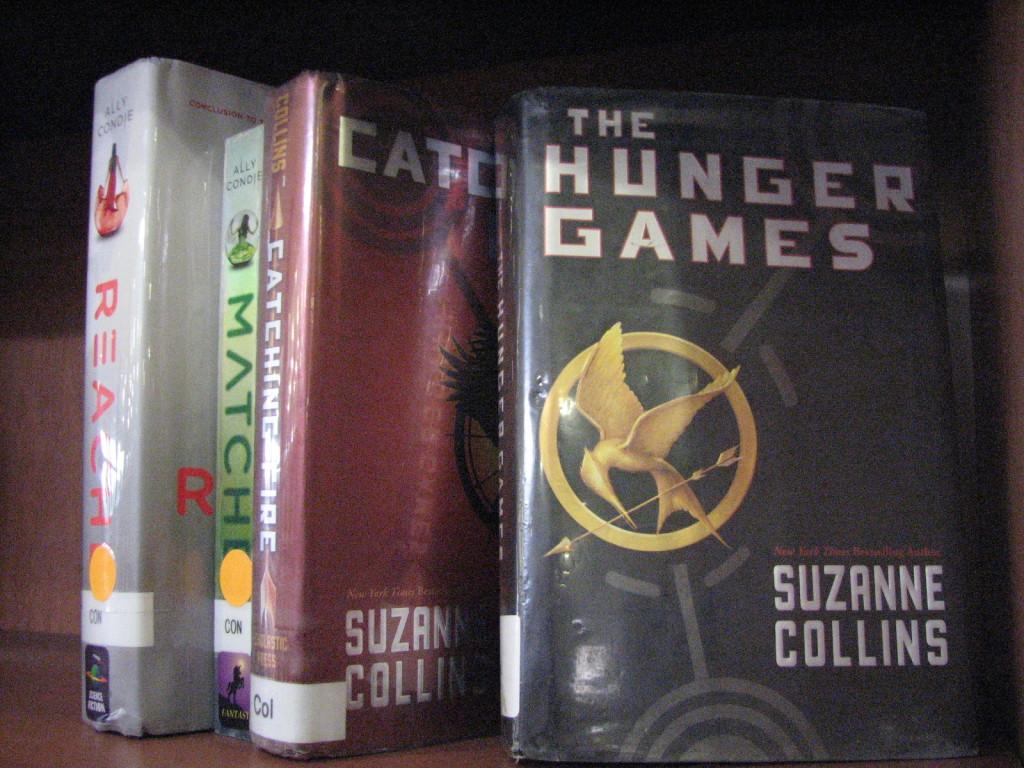Dystopian Novels Take Over the Shelves
If a librarian had a dime for every time they had shelved a dystopian novel this past summer, surely they could buy themselves the newest, best, and fastest car- or, at least, pay off all of the loans they had to take out to become a librarian. With the rise of these novels, it’s no wonder that the 2012 theory was so widely believed.
Commonly categorized with fantasy and science fiction, the dystopian novels usually contain manipulative government under the guise of being this perfect world, such as the novel Divergent by Veronica Roth. The characters live in this world where their government divides their community is divided into factions: smaller communities where they can choose to live with people similar to themselves. The only fear they live with is their test results placing them in a “divergent” category when they take their placement test at the age of 16, right? Wrong. Spoiler alert: It turns out the government has been plotting to set the factions against each other, hoping for war.
In the Hunger Games trilogy by Suzanne Collins, the Games exist to remind those in Panem, a dystopian America divided into 12 “districts”, of the sacrifice that those made in the “war, terrible war” by having one boy and one girl from each district between the ages of 12 and 18 chosen at random to be thrown into a violent fight to the death with 23 other peers. Any wrong move, breaking the law, asking for more rations, and their name goes in the bowl one more time, making the chances of them becoming a “tribute” that much greater.
Despite its only recent popularity, this genre has been around since before the 1900’s. Even Portage Northern has had a few of these novels, Lord of the Flies by William Golding and Animal Farm by George Orwell in its English curriculum long before either of these series started.That should make English seem more fun, right? While those novels are not the most traditional of the dystopian genre, they are getting the attention they need to rise back to popularity, giving life to English classes. “It has been fun because my students recogystopian No0vnized Ray Bradbury presents a fear and a concept that is true in our society today,” said Becky Zoppi-Moon, teacher for Honors English 10, on Fahrenheit 451, where books are outlawed and, government workers, naturally, burn any that are found. “They mentioned that in the novel, where nobody is reading any books and they spend their time interacting with their TV “walls” or listening to mass media messages through seashell earbuds, the media and technology create experiences that interfere with our own ability to think deeply.”
While sometimes the content of these books can be violent and aren’t for all readers, be thankful that those in charge of picking what books get to become books are thinking of teenagers again, there’s no such thing as Pamen, and there are people paid to keep those books on the shelves for others to enjoy.




